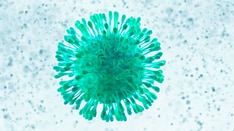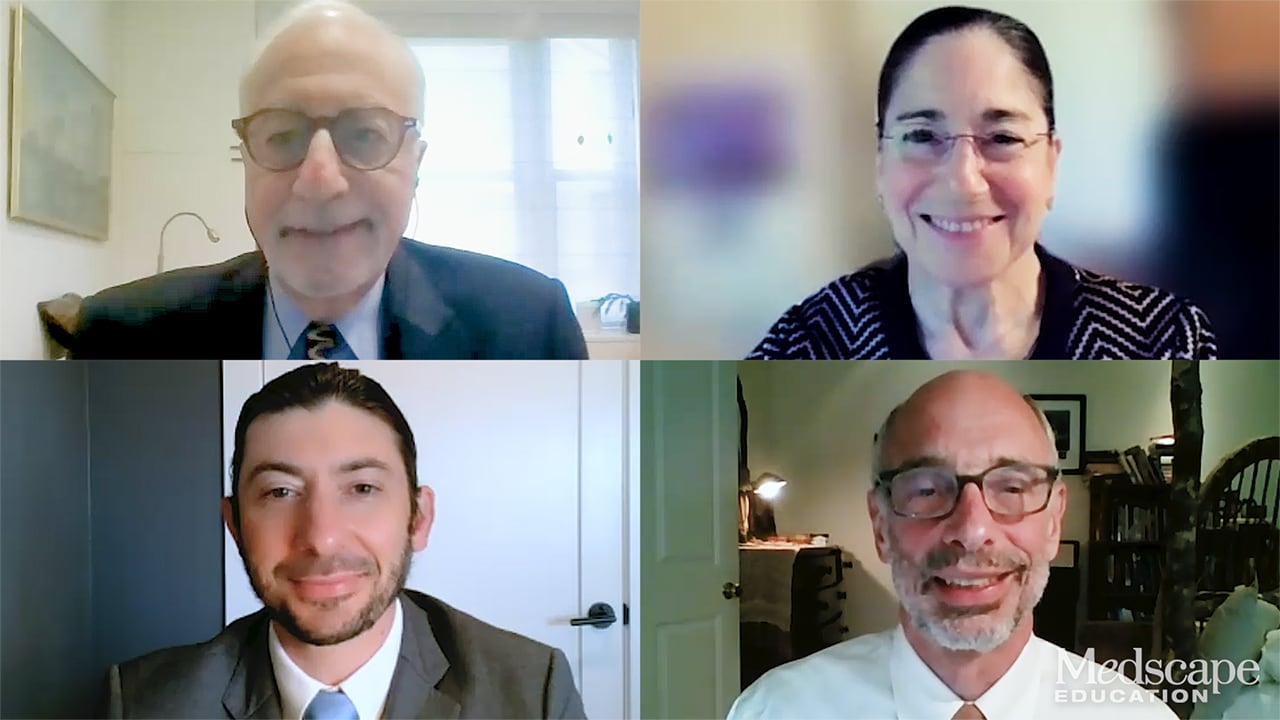November 29, 2011 ( Updated December 2, 2011 ) — The world of chronic fatigue syndrome (CFS) research took a dramatic turn this month when a prominent researcher was put (briefly) behind bars, accused of stealing data and suborning theft of research materials, and the fate of nearly $1 million in research funding was put in doubt.
The XMRV Papers
The researcher is Judy A. Mikovits, PhD, who until September 29 was research director at the Whittemore Peterson Institute (WPI) for Neuro-Immune Disease in Reno, Nevada. Dr. Mikovits led the WPI research team that has been mired in controversy since reporting an apparent association between xenotropic murine leukemia virus–related virus (XMRV) and CFS. As previously reported by Medscape Medical News, attempts by others to replicate the findings were unsuccessful, and the emerging consensus is that the association was an artifact of laboratory contamination. Parts of the paper were subsequently withdrawn, and 2 of the original authors asked to have their names removed from the paper.
Dr. Mikovits' departure from WPI apparently was due not to problems with the XMRV study but to her refusal to turn over cell samples to fellow WPI researcher Vincent C. Lombardi, PhD. Dr. Lombardi, who was first author on the original XMRV paper, is now interim research director at WPI.
After Dr. Mikovits' departure, WPI discovered that 12 to 20 laboratory notebooks and flash drives containing years of research data were also missing.
18 Notebooks Returned, Dr. Mikovits Surrenders in Reno
Dr. Mikovits was arrested at her California home on November 18 and held without bail in the Todd Road Jail in Santa Paula, California. On November 22 she appeared in Superior Court in Ventura, California, for an extradition hearing on felony charges that she was a fugitive from justice and in possession of stolen property from WPI. Jon Cohen, reporting for Science Magazine, described the surreal scene:
"They sat in a large room-within-the-room that had white metal bars for walls. They looked like they were in a cage. Four bailiffs with Taser guns strolled around the open part of the court. The other inmates included heavily muscled and tattooed men and street-tough women. The 53-year-old scientist, who has been in jail since last Friday, appeared composed but wildly out of place."
Dr. Mikovits came to be sitting in a cage in a courtroom in California because of interwoven criminal and civil cases in Nevada. After WPI discovered the notebooks missing, the institute reported a theft to the University of Nevada police, and an investigation was launched. Based on that and on the civil lawsuit promptly filed by the WPI, an initial restraining order was issued prohibiting Dr. Mikovits from altering or destroying the notebooks, and on November 17 a warrant for her arrest was issued by the University of Nevada at Reno police department. She was charged with two felonies: possession of stolen property and unlawful taking of computer data, equipment, supplies, or other computer-related property.
WPI was granted a temporary restraining order to stop Dr. Mikovits from "destroying, deleting, or altering" any of the lab materials.
In an initial statement through her attorney, Dr. Mikovits said that she had received notice of her firing on her cell phone and immediately had left for her home near Ventura, California, without visiting the institute again. She denied having the notebooks and, in fact, demanded that they be returned to her.
Shortly before the warrant for Dr. Mikovits' arrest went out, the case entered another dimension. Max A. Pfost, a research assistant at WPI, gave sworn affidavits on November 16 and November 21 admitting that he, under Dr. Mikovits' direction and using her keys and key card, had stolen the notebooks and delivered them to her.
Furthermore, on November 21, WPI research assistant Amanda McKenzie gave a sworn affidavit that Dr. Mikovits had, through Mr. Pfost, asked Ms. McKenzie to remove cell lines and blood samples from the WPI lab, but she had not done so.
According to Mr. Pfost's first affidavit, Dr. Mikovits met him in a bar after her September 29 termination, asked him to take patient samples and laboratory notebooks from WPI, and gave him the keys to her office and desk. Dr. Mikovits then left for California.
Mr. Pfost stated that he attempted to get into WPI between 4:00 am and 5:00 am on September 30 but was unable to because all key cards had been inactivated. He returned at about 8:00 am (after the building was unlocked), parked behind the building to avoid detection, and used Dr. Mikovits' office and desk keys to open the desk drawer where the laboratory notebooks were stored.
According to a later legal filing from WPI, the notebooks included "approximately 5 years of research notes and the keys to WPI's ownership of its intellectual property, including notebooks of Dr. Mikovits, Mr. Pfost, and fellow researchers Cassandra Puccineli and Kathryn Hagen. Mr. Pfost carried the notebooks to the condo he was renting from Dr. Mikovits and her husband, David Nolde, and kept them there for 4 days hidden in a large, multicolored "Happy Birthday" bag, which he later hid in his mother's garage in Sparks, Nevada.
Mr. Pfost states that on October 17, Dr. Mikovits returned secretly to Reno to retrieve personal possessions and he gave her the notebooks.
A civil suit filed November 21 by WPI charges that Dr. Mikovits "formulated the plan for the theft of the notebooks, instructed and enabled a researcher she supervised (Pfost) to implement her plan, received the stolen property at a later date, hid the stolen property from the WPI, encouraged others to lie about these matters, and caused great harm to the reputation of the WPI in the process of fabricating her defense to these matters."
The hearing on whether to extradite Dr. Mikovits from California to Nevada was scheduled for December 19, but on November 28, she waived extradition and turned herself in to University of Nevada campus police. WPI President Annette Whittemore told the Reno Gazette-Journal that "the 18 notebooks have been given to the Ventura police and we are examining them to make sure everything is there.... We believe this is all of them, but we have to be sure."
Although the initial press report said that the civil suit WPI filed against Dr. Mikovits could be dropped if all the missing materials were returned, Ms. Whittemore issued a press statement the next day firmly denying that possibility. "The damage to the Whittemore Peterson Institute is substantial and recent news coverage indicating that WPI may dismiss its civil case against Dr. Judy Mikovits is incorrect," Ms. Whittemore said.
Who Gets the Money?
The letter of termination that Ms. Whittemore sent to Dr. Mikovits cites the refusal to turn over cell lines as reason for termination and states, "Your actions have shown a complete lack of respect for your colleague and for my authority." Dr. Mikovits countered that the cells were for a specific National Institutes of Health (NIH)–funded project under her supervision and that other uses would be beyond the scope of the federal grant funding.
What happens to that funding now is an open question, and it reportedly includes about half of a $1.5 million R01 research grant from the National Institute for Allergy and Infectious Diseases for testing CFS patients and healthy controls for XMRV or related viruses. Dr. Mikovits apparently hoped to take the grant with her to a new institution, but Ms. Whittemore told the Wall Street Journal that the institute has "the research capacity, the lab, and the researchers" to continue to participate in the NIH study and that the fate of the grant "is an NIH call."
Dr. Mikovits' husband, David Nolde, told the Ventura County Star that the issue is what research property belonged to Dr. Mikovits and what belongs to WPI and predicted that a settlement will be worked out "between the two sides." Dr. Mikovits' employment contract with WPI stipulated that all intellectual property she produced while under the employ of WPI was the property of the institute.
CFS activists have mobilized support for Dr. Mikovits, and several attended the California hearing, but Ms. Whittemore and her husband Harvey are used to playing in a tough league. They funded and set up the institute to try to help a daughter who has CFS, and Mr. Whittemore has worked as a high-profile attorney for the gaming industry in Nevada.
Medscape Medical News © 2011 WebMD, LLC
Send comments and news tips to news@medscape.net.
Cite this: Jailed CFS Researcher, Notebooks Return to Reno - Medscape - Nov 29, 2011.










Comments